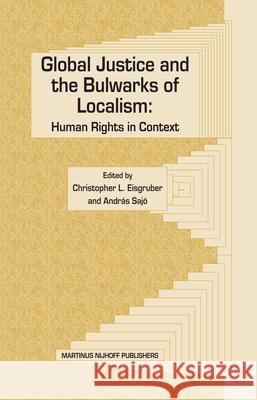Global Justice and the Bulwarks of Localism: Human Rights in Context » książka
Global Justice and the Bulwarks of Localism: Human Rights in Context
ISBN-13: 9789004145719 / Angielski / Twarda / 2005 / 346 str.
The rise of international human rights during the last half of the twentieth century has transformed traditional notions of sovereignty. No longer is international law concerned almost exclusively with external relations among states and their representatives. Now, it imposes substantial restrictions on the domestic affairs of states and protects ordinary persons against mistreatment by their own government. The change came about in response to the Holocaust and the century's other great tragedies. Few doubt its value. Nevertheless, power exercised in the name of human rights can be misused or abused. As human rights institutions matured, and as international organizations intervened more vigorously on a global scale, human rights advocates and their critics worried about whether quests to vindicate supposedly universal human rights might sometimes impose western, first-world norms on cultures that did not want them. In this volume, internationally noted scholars collaborate to address issues about human rights and local culture from philosophical, legal, anthropological and sociological perspectives. Their essays focus on topics including self-determination, religion, truth & reconciliation commissions, and sexual mores.











